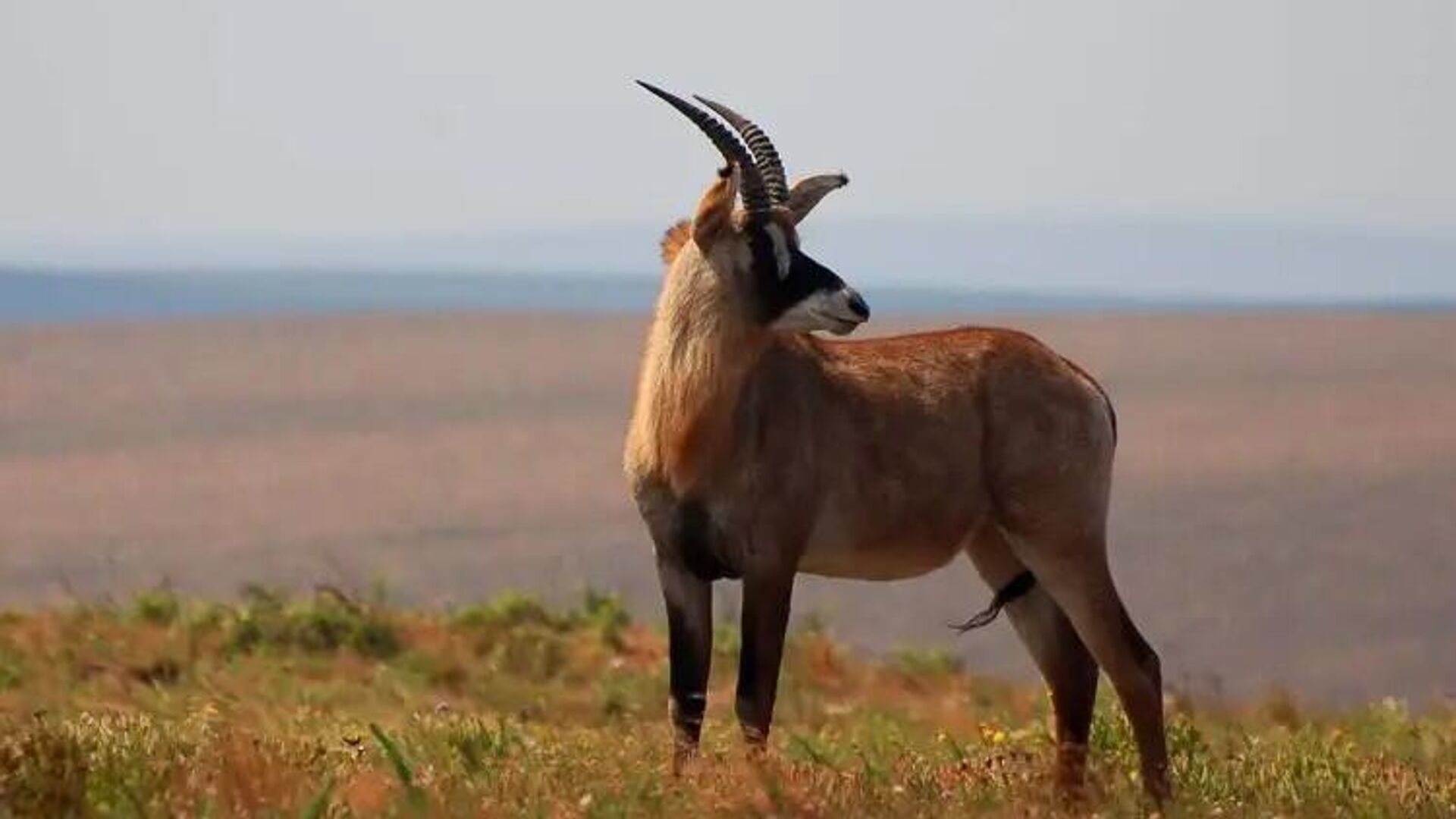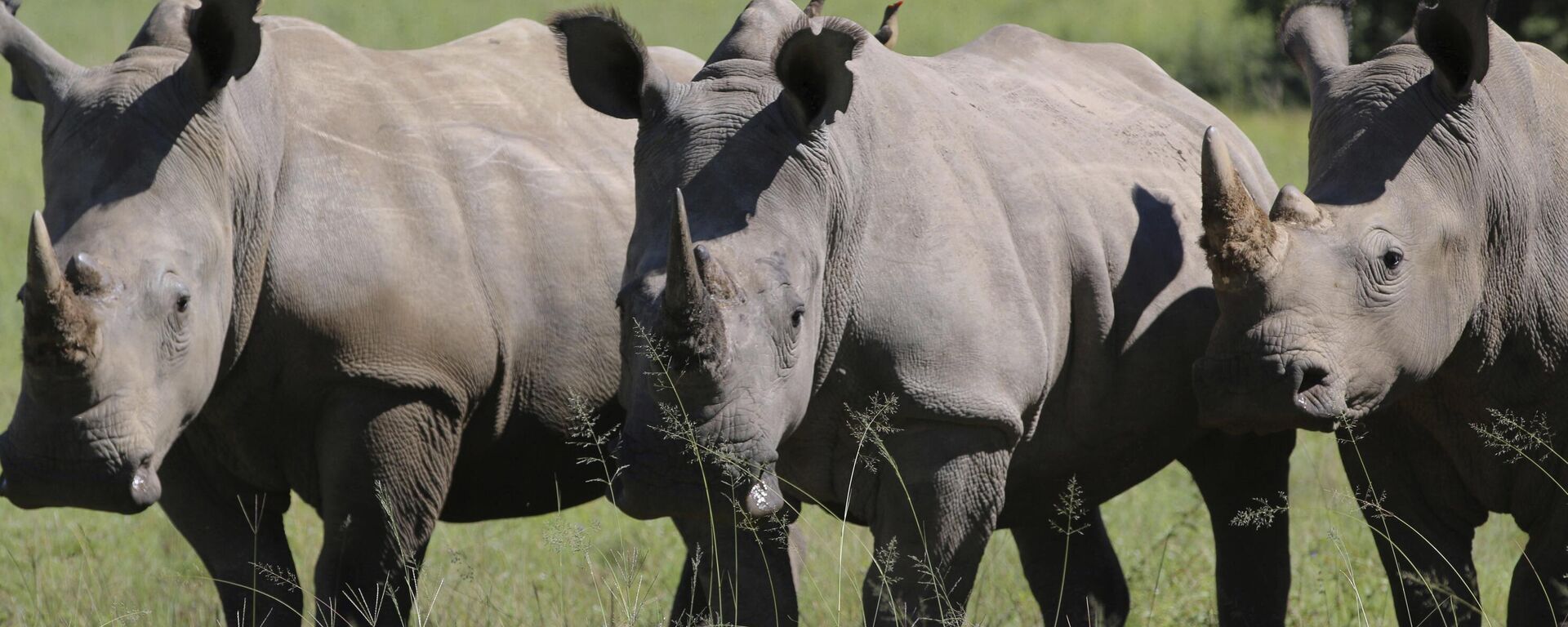https://en.sputniknews.africa/20240329/south-africa-proposes-eating-wild-animals-as-part-of-new-conservation-strategy-reports-say-1065821833.html
South Africa Proposes Eating Wild Animals as Part of New Conservation Strategy, Reports Say
South Africa Proposes Eating Wild Animals as Part of New Conservation Strategy, Reports Say
Sputnik Africa
There are now more than 20 million big game in South Africa, up from about 500,000 in 1964, according to the authorities. Four-fifths of them inhabit on... 29.03.2024, Sputnik Africa
2024-03-29T14:39+0100
2024-03-29T14:39+0100
2024-03-29T14:56+0100
sub-saharan africa
animals
south africa
animals' protection
food
environment
wildlife
https://cdn1.img.sputniknews.africa/img/07e8/03/1d/1065821973_0:90:750:512_1920x0_80_0_0_eafec012ef9b10c88de5061668b3c447.jpg
South African authorities have recommended that the country's population eat wild antelope meat to increase its value to residents and encourage its breeding, as part of a new wildlife conservation strategy developed by the country's Department of Environmental Affairs, media reported.According to the report, such a strategy would increase the value of antelope inhabiting large tracts of marginal or degraded land, provide an incentive to conserve their habitat, and potentially provide a source of income for many of the country's poorest and most remote rural areas.Khorommbi Matibe, chief director for biodiversity economy and sustainable use at the Department of Forestry, Fisheries and the Environment, added in an interview with the media that the health benefits of game meat as it is low in cholesterol.South Africa already exports farmed crocodile and ostrich meat, as well as wild zebra meat, and the department wants to significantly expand the strategy to include antelope meat.The department has reportedly set a goal to increase wild meat production more than sixfold, from $240 million in 2020 to $1.5 billion by 2036.South Africa is home to some 24 000 species, around 7% of the world’s vertebrate species, and 5.5% of the world’s known insect species, according to the department.
https://en.sputniknews.africa/20240227/almost-500-rhinos-were-killed-last-year-in-south-africa-due-to-rise-in-poaching-1065280290.html
south africa
Sputnik Africa
feedback@sputniknews.com
+74956456601
MIA „Rossiya Segodnya“
2024
Maxim Grishenkin
https://cdn1.img.sputniknews.africa/img/07e7/0a/17/1063018107_0:0:1104:1103_100x100_80_0_0_03090c85a11f5d2e8a19cf1d989443c9.jpg
Maxim Grishenkin
https://cdn1.img.sputniknews.africa/img/07e7/0a/17/1063018107_0:0:1104:1103_100x100_80_0_0_03090c85a11f5d2e8a19cf1d989443c9.jpg
News
en_EN
Sputnik Africa
feedback@sputniknews.com
+74956456601
MIA „Rossiya Segodnya“
Sputnik Africa
feedback@sputniknews.com
+74956456601
MIA „Rossiya Segodnya“
Maxim Grishenkin
https://cdn1.img.sputniknews.africa/img/07e7/0a/17/1063018107_0:0:1104:1103_100x100_80_0_0_03090c85a11f5d2e8a19cf1d989443c9.jpg
animals, south africa, animals' protection, food, environment, wildlife
animals, south africa, animals' protection, food, environment, wildlife
South Africa Proposes Eating Wild Animals as Part of New Conservation Strategy, Reports Say
14:39 29.03.2024 (Updated: 14:56 29.03.2024) There are now more than 20 million big game in South Africa, up from about 500,000 in 1964, according to the authorities. Four-fifths of them inhabit on private land.
South African authorities have recommended that the country's population eat wild antelope meat to increase its value to residents and encourage its breeding, as part of a new wildlife conservation strategy developed by the country's Department of Environmental Affairs, media reported.
According to the report, such a strategy would increase the value of antelope
inhabiting large tracts of marginal or degraded land, provide an incentive to conserve their habitat, and potentially provide a source of income for many of the country's poorest and most remote rural areas.
Khorommbi Matibe, chief director for biodiversity economy and sustainable use at the Department of Forestry, Fisheries and the Environment, added in an interview with the media that the health benefits of game meat as it is low in cholesterol.
South Africa already exports farmed crocodile and ostrich meat, as well as wild zebra meat, and the department wants to significantly expand the strategy to include antelope meat.
"We want to dedicate a lot of our effort to consumption of these antelope, which are breeding in the hundreds of thousands," Matibe added.
The department has reportedly set a goal to increase wild meat production more than sixfold, from $240 million in 2020 to $1.5 billion by 2036.
South Africa
is home to some 24 000 species, around 7% of the world’s vertebrate species, and 5.5% of the world’s known insect species, according to the department.



